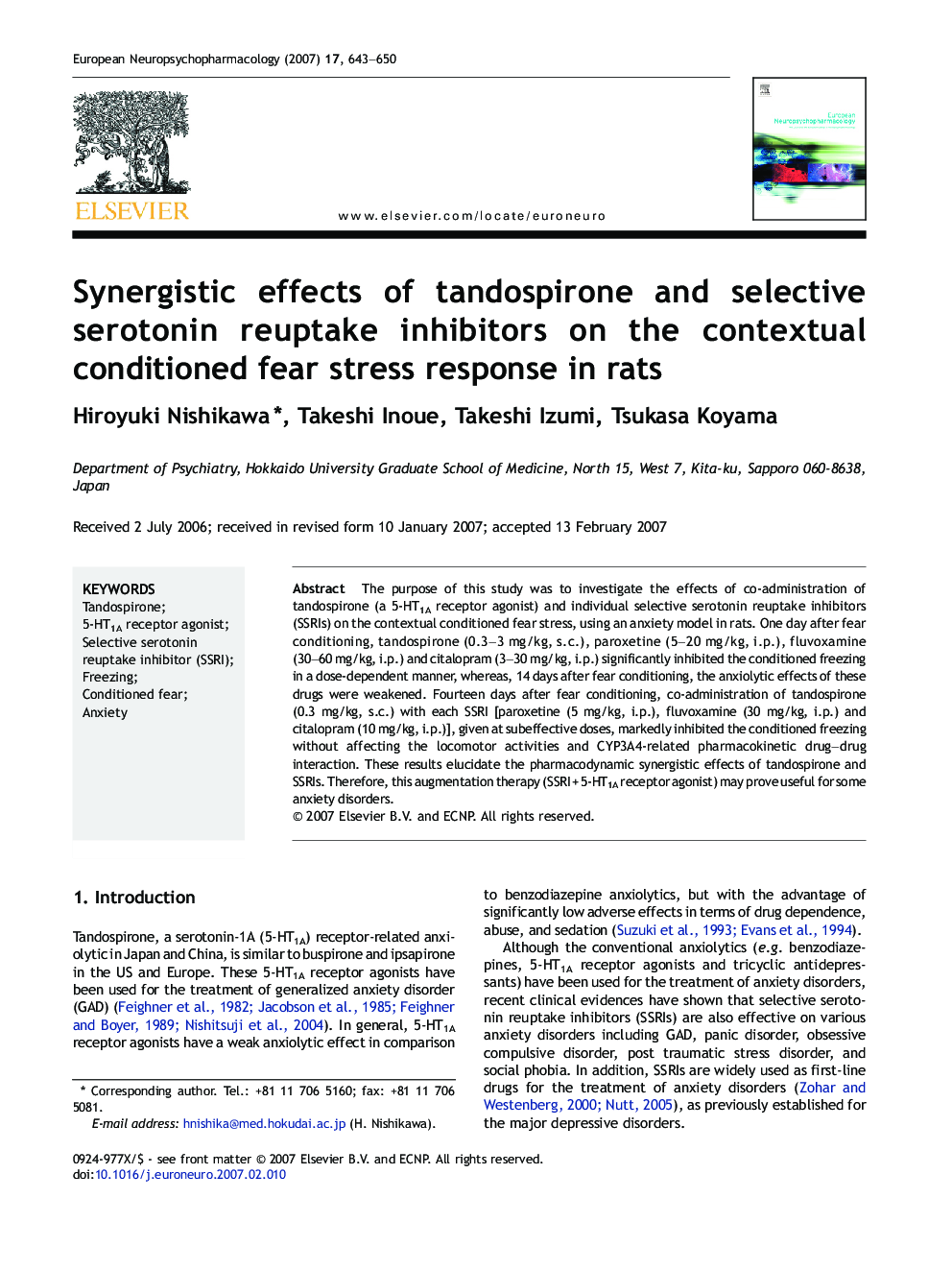| Article ID | Journal | Published Year | Pages | File Type |
|---|---|---|---|---|
| 319249 | European Neuropsychopharmacology | 2007 | 8 Pages |
The purpose of this study was to investigate the effects of co-administration of tandospirone (a 5-HT1A receptor agonist) and individual selective serotonin reuptake inhibitors (SSRIs) on the contextual conditioned fear stress, using an anxiety model in rats. One day after fear conditioning, tandospirone (0.3–3 mg/kg, s.c.), paroxetine (5–20 mg/kg, i.p.), fluvoxamine (30–60 mg/kg, i.p.) and citalopram (3–30 mg/kg, i.p.) significantly inhibited the conditioned freezing in a dose-dependent manner, whereas, 14 days after fear conditioning, the anxiolytic effects of these drugs were weakened. Fourteen days after fear conditioning, co-administration of tandospirone (0.3 mg/kg, s.c.) with each SSRI [paroxetine (5 mg/kg, i.p.), fluvoxamine (30 mg/kg, i.p.) and citalopram (10 mg/kg, i.p.)], given at subeffective doses, markedly inhibited the conditioned freezing without affecting the locomotor activities and CYP3A4-related pharmacokinetic drug–drug interaction. These results elucidate the pharmacodynamic synergistic effects of tandospirone and SSRIs. Therefore, this augmentation therapy (SSRI + 5-HT1A receptor agonist) may prove useful for some anxiety disorders.
